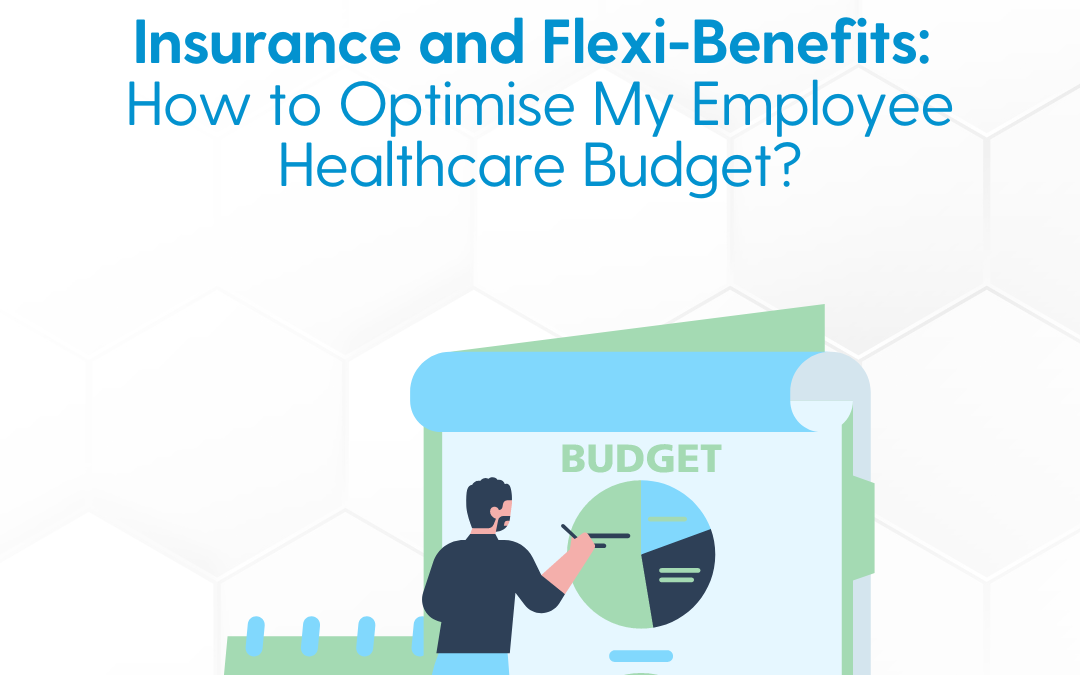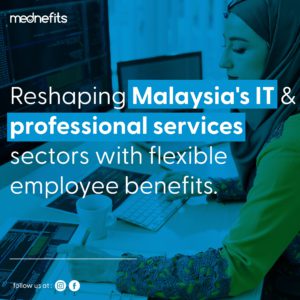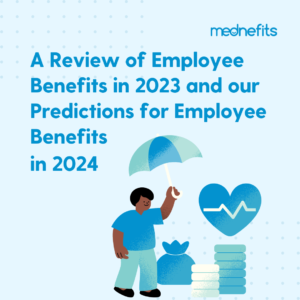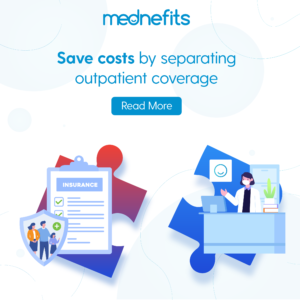Careers at Mednefits | Quality Assurance Engineer
September 23, 2024Careers at Mednefits | Senior Product Designer
September 30, 2024Insurance and Flexi-Benefits: How to Optimise My Employee Healthcare Budget?
Employee Benefits
Insurance and Flexi-Benefits: How to Optimise My Employee Healthcare Budget?
September 25, 2024
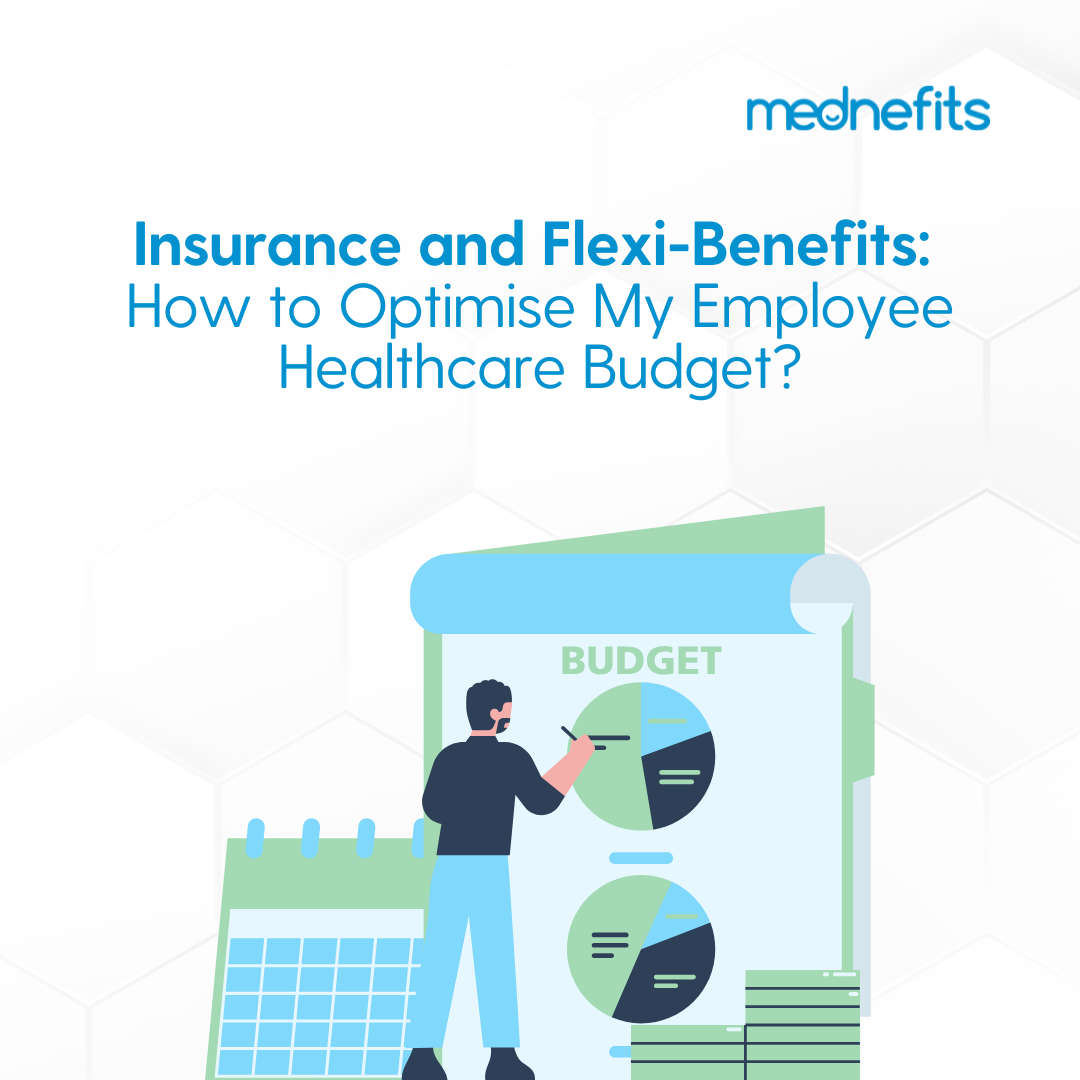
Healthcare costs are projected to rise significantly across Asia, with Malaysia and Singapore experiencing increases of 12% and 9% respectively in recent years. Key drivers of these costs include non-communicable diseases (NCDs), such as diabetes and cardiovascular issues, alongside mental health challenges that have intensified due to the pandemic. Employers are increasingly burdened by the need to provide comprehensive coverage while managing escalating expenses. Given these challenges, businesses must adopt a strategic approach to manage their healthcare expenses effectively whilst maintaining employee satisfaction.
One effective strategy has been the implementation of flexible benefits programmes, which allow employers to tailor their benefits according to their employees’ individual needs.
What are flexible benefits?
“Flexi-benefits” allow employees and their employers to customise their benefits package based on their individual needs and preferences. This concept empowers employees and employers to not only select benefits that are most relevant to them, rather than relying on a one-size-fits-all approach but also allows for more flexibility in their budget.
Advantages of Flexible Benefits in Optimising Your Healthcare Budget
Implementing a flexible benefits program offers several advantages for both employers and employees:
- Cost Control:
Flexible benefits programmes allow employers to set a defined budget for employee benefits. By establishing a monthly spending limit, organisations can better predict and plan for their annual costs and avoid unexpected expenses.
- Employee Satisfaction:
Employees appreciate the ability to choose benefits that align with their personal circumstances. This autonomy can lead to higher job satisfaction and increased loyalty to the organisation.
- Enhanced Utilisation:
When employees can select benefits that matter most to them, they are more likely to utilise those benefits. This can reduce reliance on more expensive insurance claims, ultimately lowering overall healthcare costs.
- Focus on Preventive Care:
Flexible benefits can include options for preventive care, such as wellness programmes and health screenings. By encouraging employees to prioritise their health, organisations can mitigate long-term medical costs associated with chronic conditions.
- Attraction and Retention of Talent:
A robust flexible benefits programme can serve as a powerful tool for attracting and retaining top talent. In a competitive job market, offering customisable benefits can differentiate an organisation from its competitors. With attractive benefits that lead to higher retention rates, organisations can avoid costs associated with rehiring talent.
Strategies for Implementation
To effectively implement flexible benefits and optimise your healthcare budgets, organisations should consider the following strategies:
- Conduct a Comprehensive Benefits Audit
Before implementing a flexible benefits programme, it's essential to conduct a thorough audit of the current benefits offered. This audit should include:
- Analysis of Utilisation Rates: Identify which benefits are being used and which are underutilised. Understanding employee preferences can help inform decisions about which benefits to retain or modify.
- Employee Feedback: Gather feedback from employees through surveys or focus groups to understand their needs and expectations. This input can guide the design of a flexible benefits programme that resonates with the workforce.
- Leverage Technology
Incorporating technology into benefits management can streamline processes and enhance efficiency. Consider the following technological solutions:
- Automated Benefits Management Systems: Implementing automated systems can simplify the administration of benefits, reduce paperwork, and minimise errors. Furthermore, systems like Mednefits also provide real-time tracking of claims and benefits usage.
- Mobile Apps: Mednefits also offer a mobile app for employees to manage their benefits that can enhance accessibility and engagement. Employees can easily review their options, submit panel and non-panel claims, and track their benefits from their smartphones.
- Promote a Culture of Health
Fostering a workplace culture that prioritises health and well-being can lead to lower claims costs and improved employee morale. Organisations can promote a culture of health through:
- Wellness Programmes: Implement wellness initiatives that encourage healthy behaviors, such as fitness challenges, nutrition workshops, and stress management seminars. These programs can help employees adopt healthier lifestyles and reduce the risk of chronic conditions.
- Promoting a Preventative Approach to Health: Equipping employees with access to annual health screenings and GPs for mild illnesses ensures their health is looked after and any impending illnesses can be prevented. This allows organisations to avoid any sudden long-term medical costs or chronic illnesses.
- Engage with Benefits Experts
Collaborating with benefits experts such as Mednefits, who understand local legislations and nuances can provide valuable insights into innovative solutions that not only ensures your organisations adhere to these rules but also tailored to your specific organisational needs. They can also assist with identifying the right mix of flexible benefits that align with employee needs and employer’s budget constraints.
- Monitor and Adjust the Programme
Once a flexible benefits programme is implemented, it’s crucial to continuously monitor its effectiveness and make adjustments as needed. This can involve:
- Regular Feedback Surveys: Conducting periodic surveys to gather employee feedback on the benefits offered can help identify areas for improvement.
- Utilisation Analysis: Regularly analysing the utilisation rates of different benefits can inform decisions about which offerings to enhance or eliminate.
Optimising employee healthcare budgets through insurance and flexible benefits requires a proactive, strategic approach. By embracing flexible benefits, organisations can provide employees with the autonomy to choose the benefits that best meet their needs, ultimately leading to higher satisfaction and loyalty.
Mednefits is a leading employee flexible benefits platform that simplifies this process. By offering a customisable benefits management system, Mednefits empowers organisations to design and manage personalised outpatient and flexible benefits for their employees. This not only enhances employee experience but also helps companies control costs effectively.
By integrating Mednefits into your benefits strategy, companies can navigate the complexities of healthcare management and create a sustainable approach that benefits both the organisation and its employees.
